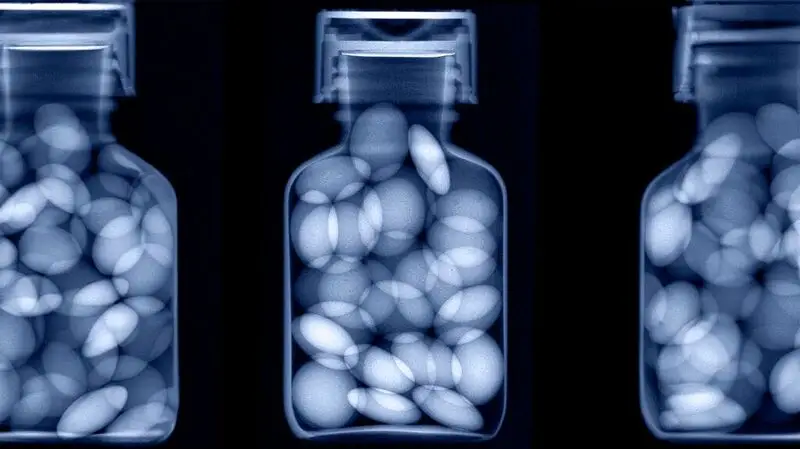
- Researchers say the hair loss drug finasteride may also help cut down risk of heart disease.
- They say it lowers the risk by helping to reduce cholesterol levels.
- Experts note that the potential side effects of the drug treatment make more research necessary.
A drug that puts more hair on one’s head may also make for a stronger heart.
A new study published in the Journal of Lipid Research states that the hair loss drug finasteride, also known by brand names Propecia or Proscar, may also reduce cholesterol and lower a person’s chance at developing heart disease.
The study looked at men participating in the
Finasteride is typically taken to treat male baldness and benign prostatic hyperplasia, so women were excluded from the analyses. Men with prostate inflammation and infection as well as having been diagnosed or self-reported with prostate cancer were also excluded from the study.
Only 10 of the 165 men in the survey taking finasteride were less than 50 years old, so the researchers only looked at men older than 50.
The researchers from University of Illinois Urbana-Champaign also looked at the effects of finasteride on male mice.
Specifically, the researchers looked at the role of finasteride on atherosclerosis using low-density lipoprotein (LDL) receptor-deficient mice. Atherosclerosis is a main underlying factor responsible for cardiovascular disease, the leading cause of death worldwide.
The research team fed some of the mice a Western diet containing increasing doses of finasteride (10, 100, and 1000 mg/kg of diet) for 12 weeks. The other mice received the same diet without finasteride.
In mice, researchers reported that those taking finasteride experienced reduced cholesterol, delayed progression of artery-narrowing atherosclerosis, and lessened liver inflammation. Meanwhile, men taking finasteride had lower levels of total cholesterol and LDL cholesterol.
Finasteride is also taken to treat men with large prostate glands. The drug works by blocking a protein in hair follicles and the prostate gland that activates testosterone.
The authors of the study wrote that finasteride has also recently been
The researchers said their study did have limitations in that the research describes parallelisms between mice and humans on plasma cholesterol in response to finasteride, but the results must be interpreted with caution due to, at least in part, interspecific differences on lipoprotein metabolism.
Also, of nearly 4,800 survey respondents meeting the general health criteria for inclusion in the analysis, only 155 men reported using finasteride, a small sample. There was also no information on how long the men took the drug.
Dr. Rigved Tadwalkar, a consultant cardiologist at Providence Saint John’s Health Center in California who wasn’t involved in the research, told Medical News Today that “the study is interesting and suggests a potential new avenue for research,” but he doesn’t consider it groundbreaking.
“It provides reasonable evidence that finasteride might have beneficial effects on cholesterol and atherosclerosis,” Tadwalkar said. “However, if further research corroborates and expands on these findings, it could lead to a novel approach in preventing and treating atherosclerotic cardiovascular disease, particularly in individuals with certain risk factors.”
Tadwalkar added that the study has “several significant limitations.”
“The differences between mice and humans introduce uncertainties in the direct translation of results to human populations, given variations in metabolism and physiology,” Tadwalkar said. “The human population study relies on an observational design, making it challenging to establish a clear cause-and-effect relationship. The absence of controlled interventions also limits the ability to definitively attribute observed outcomes to finasteride.”
Tadwalkar said the study lacks details such as finasteride dosage, treatment duration, and potential “confounding” variables, diminishing the depth of its findings.
“The mechanisms through which finasteride exerts its effects remain elusive, highlighting the need for a more comprehensive understanding of the drug’s impact on atherosclerosis and lipid profiles,” he said.
Dr. Samantha Lee, the director of cardiac telemetry at Staten Island University Hospital in New York who was not involved in the study, told Medical News Today that she never considered the idea that finasteride could be a medication with any significant cardiac risks or benefits.
“We have many patients who take this medication for an enlarged prostate or hair loss and it was not on my radar as a potential cholesterol-lowering therapy,” Lee said. “In the last decade, cardiology has seen huge advancements in the fight against heart disease… now that cardiologists are equipped with more effective drugs, there has been a shift in the way we think about coronary artery disease.”
Lee said the study helps reshape the idea that doctors aren’t limited to just treating plaque when it blocks blood flow to the heart.
“We can focus our efforts on the prevention of atherosclerosis,” she said. “This study demonstrates the cholesterol-lowering benefits of finasteride using both mouse models as well as population data… it is certainly another medication in our toolbox.”
Dr. Nikki Bart, a heart failure and heart transplant cardiologist at St Vincent’s Hospital Sydney in Australia who wasn’t involved in the study, said more research is needed.
“To understand whether finasteride is beneficial for cholesterol levels and plaque buildup in humans a prospective – where people are enrolled and studied going forward – randomized control trial of finasteride versus control would need to be performed,” Bart told Medical News Today.
She said people who already have heart disease should discuss using finasteride with their cardiologist.
“Finasteride has a potent interaction with heart medications containing nitrates,” Bart said. “It also interacts with another class of heart medications used in pulmonary hypertension.”
“Potential side effects of finasteride include sexual dysfunction, depression, infertility, breast swelling/tenderness, breast cancer, and rash. It should be used avoided in patients with severe bladder problems or liver problems,” she cautioned.





